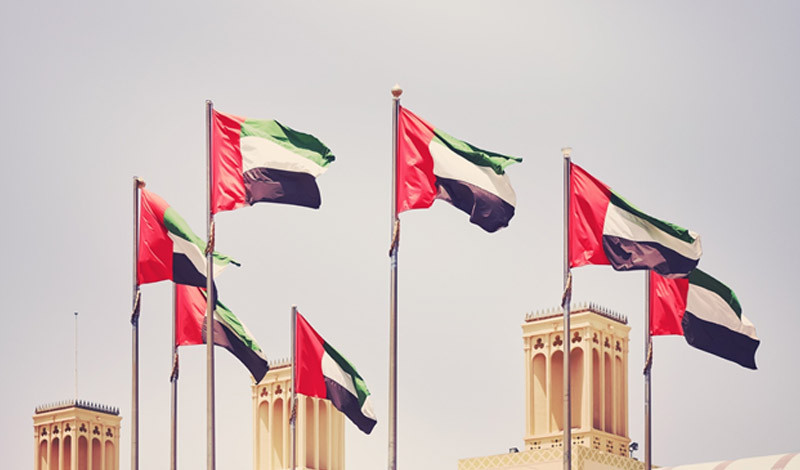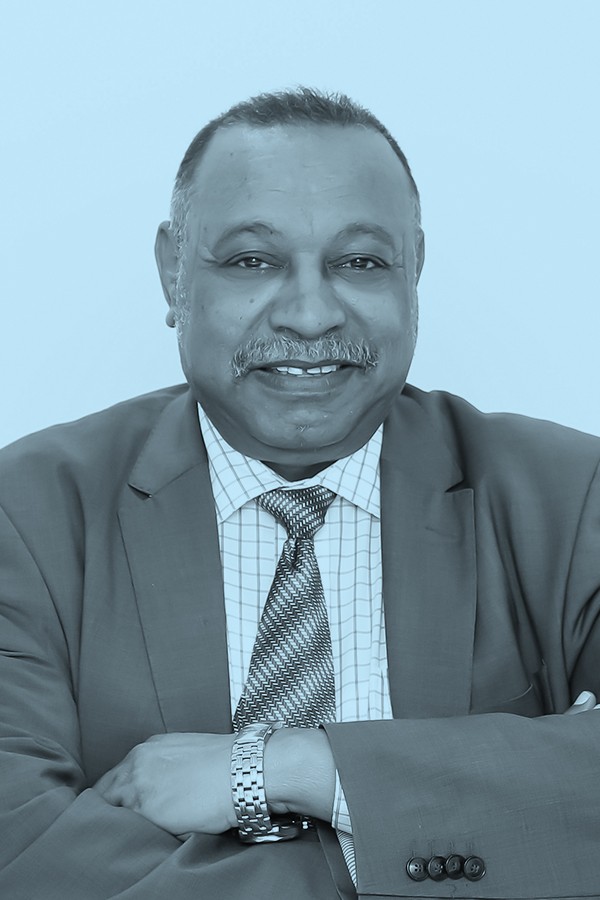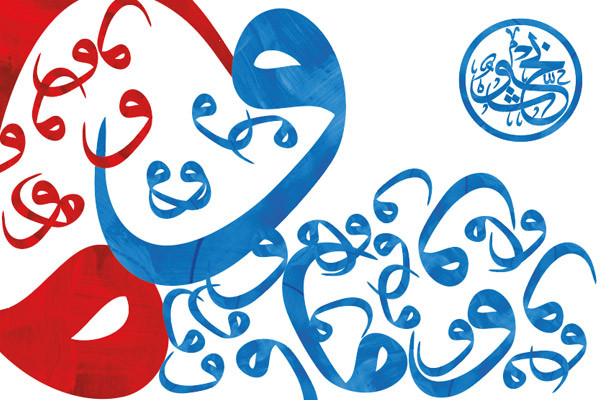National Strategic Integration
The UAE has occupied a prestigious rank regionally and internationally with the remarkable effort of its leadership. The national cadres have acquired technical and managerial skills through ongoing academic qualification and training programs for forty four years, since the founding of the state.

- by Dr.Ibrahim Karsany ,
- Wednesday, 31st August, 2016
These institutions highlighted the leading character of the UAE at both regional and international levels. Selecting the country to host EXPO 2020 is strong evidence that the UAE has achieved such a recognizable stature. The UAE has achieved advanced positions on the scales of different reliable indicators. The UAE jumped from sixth to first position on the Edelman Trust Barometer 2014 of Edelman Institution in New York. It ranked highest for public faith in government at 88%, and 82% for trust in business. In the World Economic Forum’s Global Competitiveness report of 2013-2014, the UAE was ranked 19th overall on the Global Competitiveness Index (GCI). While the report by the World Bank and the International Finance Corporation on the ‘Ease of Doing Business for the year 2014’, ranked the UAE first among Arab countries, and 23rd globally.
Speaking of citizens’ happiness and satisfaction, the country ranked 14th and hailed as the first among Arab countries on the second global survey report conducted by the United Nations for measuring happiness. In addition, the UAE has maintained its strong presence among innovation-based economies for the eight consecutive years, which is considered by the methodology of the World Economic Forum (WEF) as the most advanced phase of an economy’s development.
Edelman referred the remarkable ratings of trust levels in the UAE to the strategic plans of the government, especially in the fields of economy, health and education, in addition to large investments in infrastructure.
This outstanding rank is achieved through sustained efforts at all levels, particularly the strategic integration and the well-defined vision of the state. The rest of this article will provide an answer to a very critical question and will clarify the importance of linking the strategic integration and the clarity of the vision of the state. The question is: What are the requirements for preserving this prestigious stature based on the accredited and credible global indices?
A straightforward answer is the strategic integration between the seven emirates in all aspects, especially the economy and the activities related to the cultural development and strengthening national identity. Strategic integration on the regional level is also important, with GCC countries in particular.
Strategic planning is the key for a successful strategic integration process.
In February 2010, the UAE vision 2021 was formulated by the federal government based on a principle that prioritizes the citizen. The vision adopted seven principles, seven enablers and seven priorities to achieve balanced development among the emirates. Individual strategic plans for each emirate are also included in the vision.
In summarizing the UAE vision 2021, we quote: "In a strong and safe union, knowledgeable and innovative Emiratis will confidently build a competitive and resilient economy. They will thrive as a cohesive society bonded to its identity and enjoy the highest standards of living with a nurturing and sustainable environment."
The headmost requirement of a successful strategic integration is full coordination between the seven emirates of the country in all aspects, which implies policies’ coordination in economic and social sectors. As such, the strategic integration requires setting strategic goals in the vital sectors that lead sustainable development in business, tourism, industry and infrastructure services. This coordination is suggested to be based on the competitive advantage of each emirate on the field that it masters. There are federal ministries for health, education and economy, while local departments that practice activities directly related to latter mentioned sectors also exist. Thus, coordination between these different federal and local entities is a necessity to achieve harmony that help in accomplishing the predefined strategic goals.
The seven-year UAE National Agenda leading to the UAE Vision 2021, which was launched by His Highness Sheikh Mohammed bin Rashid Al Maktoum in 14th January 2014, includes goals and projects in the sectors of education, healthcare, economy, security, housing, infrastructure and government services.
This agenda represents a major challenge for both federal and local governments, as it depends basically on the strategic integration between the emirates and the effective coordination between them and the federal government. Executing this agenda and achieving its goals and hence the state’s vision, entails coordination between ministries, organizations and councils entrusted with the implementation of this task. Besides, the private sector must play a major role for this mission to be perfected. However, to achieve this, the private sector is expected to be involved in planning process and suggesting policies and mechanisms for executing the agenda and accordingly reach the UAE vision 2021 successfully.
Involvement of the private sector in this task requires a proper mechanism to ensure the active participation in all stages of planning and formulation. The opinion and suggestions put forth by the private sector should also be considered to guarantee fulfillment of the sector’s promises and utilization of its resources in a beneficial way to the sector itself and the economy and society of the UAE in general.
For this partnership to be fruitful for both the private and public sector, the mechanisms to improve the relationship short and long terms should be explored This can be achieved by developing a regular stable relationship, rather than the meet at emergencies. They may also take important decisions together.
Accordingly, the establishment of a “Higher Planning Council” is recommended as a proper mechanism that joins government and private sector for the purpose of executing the National Agenda and reach the UAE Vision 2021.
The regional strategic integration is important to achieve the UAE Vision 2021. The current changes imply reconsidering the methodologies of acquiring a knowledge economy and utilize it towards sustainable development. It has become impossible for any state to secure the requirements of sustainable development individually, with integration and benefits exchange. In addition to that, the globalization of the economy and trade as well as progressive worldwide changes are too risky to be endured by any state individually.
An international trend towards regional integration is growing in popularity as a tool to minimize these risks.
Even powerful countries are expanding their regions. The United States for example, established a free trade zone for the North America: The North American Free Trade Agreement (NAFTA), and calls for establishing a free trade zone that involves North and South America. It also expanded its region to the Pacific Ocean to conglomerate with some Asian countries and Australia. The European Union is another example for conglomeration.
Furthermore, countries in Asia and Africa are also adopting this trend Strategic integration on both local and regional level is now an agreed upon tool for approaching advanced levels of sustainable economic development and achieving the welfare and happiness of the people regardless of the different mechanisms. It has also become clear that political will and economic capabilities are two factors that have the dominant role in successful and sustainability of any strategic integration towards the state’s vision.
As these factors are available in the UAE, I have no doubt that we will successfully approach the UAE Vision 2021 and attain its objectives
position has become globally recognized and documented by relevant institutions, centers and fora which are known for their credibility.

Dr.Ibrahim Karsany
Economic consultant
Read More
Areas of Expertise
- Public Policy
- Development issues
- Economic Planning
- Competitiveness
Education
Ph.D. in Economics.
bio
Dr. Ibrahim Karsany graduated from Khartoum University with a Bs.C. (Hon) in economics, followed by a Ph.D. in development economics from Leeds University, England. He has accumulated a rich research experience in different fields of study ranging from development studies, economic planning, and problems of under-development to total quality management and competitiveness of nations.
Dr. Karsany’s work experience extends over four decades and ranges from university teaching, at both undergraduate and graduate levels, to working in international organizations such as the United Nations Development Programme (UNDP) and in Governments, e.g, as Advisor to the Ministry of Economy, Oman, Muscat and as Economic Development Advisor, Department of Economic Development, Dubai, as well as in the Private Sector (DPPRC, Bhuth).
He has been a Visiting Professor and Scholar at reputable academic institutions; notable amongst them are Bergen University, Norway, The Scandinavian Institute for African Studies, Uppsala, Sweden, and The Hungarian Academy of Science, Budapest. He also published a number of studies in learned specialized international journals and served on the Editorial Boards of Academic Journals in Sudan and abroad; e.g, The Review of African Political Economy (ROAPE), published in England. He has also presented papers as well as participated in a considerable number of international conferences, seminars and workshops and has published more than sixty pieces in daily printed as well as electronic papers covering a wide range of socio-economic as well as political topics and issues.

